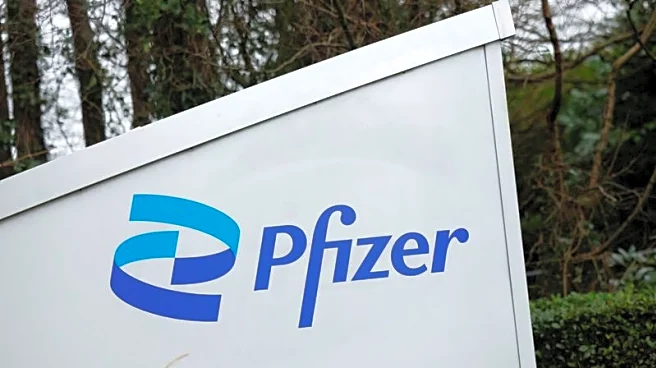By Michael Erman and Sabrina Valle
(Reuters) -U.S. drugmaker Pfizer could work its connections within President Donald Trump's administration to try to thwart Novo Nordisk's surprise rival bid to acquire
U.S. obesity biotech firm Metsera, analysts, investors and lawyers said on Thursday.
Danish obesity and diabetes drug giant Novo said on Thursday it had bested Pfizer's already agreed-upon deal, kicking off a fight for advantage in the market analysts forecast will grow to $150 billion. The next step is Pfizer's, which has four business days to make a counteroffer, Metsera said, describing Novo's bid as "superior."
A Pfizer spokesperson did not have an immediate comment on whether the company would do so. The company has also said it is ready to legally challenge Novo's bid.
The Trump administration is relatively transactional and tends to favor U.S.-oriented or politically savvy companies, Bernstein analyst Courtney Breen said. Pfizer CEO Albert Bourla has particularly close ties to the president, she added.
"If there is the potential for any political interference ... Pfizer is on the right side of that equation at this point," Breen said.
BOURLA HAS HISTORY WITH TRUMP
Bourla has worked hard to strengthen his relationship with Trump this year, traveling often to the White House and Mar-a-Lago to meet with the president.
Pfizer was also the first to break from other major drugmakers and strike a deal to lower prescription drug prices, with Bourla sharing the stage with Trump at the White House.
"Bourla has done a good job at creating a relationship with the administration that will hopefully allow them to get access to the market," said Brian Mulberry, portfolio manager at Zacks Investment Management, which owns 2.4 million Pfizer shares.
The White House declined to comment.
PFIZER NEEDS AN OBESITY WIN
Pfizer has had numerous setbacks in the obesity space, including early-stage experimental treatments that did not work as hoped or faced significant concerns.
The obesity failures have contributed to a more than 50% decline in its value, driven since its pandemic-era high due to waning revenue from COVID products and looming patent expirations for key drugs.
"I don't think Pfizer has another option that would accelerate them to this point so quickly. They'd have to come back to something that is in a very early stage, that would be longer term to profitability," Mulberry said.
Bernstein's Breen said Pfizer also must contend with a perception that it has historically overpaid for acquisitions.
"If they go and just ramp up their price and their offer to Metsera, I think there could be some mixed reactions to that, because people don't want Pfizer to overpay for M&A like they perhaps have in the past," Breen said.
NOVO ANTITRUST ISSUES ARE POSSIBLE
Pfizer could also play the antitrust card: Novo Nordisk is one of two dominant players in the obesity medication space and the U.S. Federal Trade Commission has some history of considering how unapproved experimental treatments could impact a market.
Bristol Myers in its 2019 deal for competitor Celgene, sold Celgene's blockbuster psoriasis treatment Otezla and Allergan sold off brazikumab, a drug in development to treat autoimmune diseases, so it could be bought by AbbVie.
David Balto, an antitrust lawyer and former policy director of the FTC, warned that Novo Nordisk's acquisition of a potentially significant rival in Metsera raised competitive risks.
"The FTC appropriately looks at drugs in the pipeline as being potentially significant rivals, and so the acquisition of a rival raises as significant competitive concern as the acquisition of an incumbent," he noted.
(Reporting by Michael Erman; additional reporting by Andrea Shalal and Jeff Mason in Washington; editing by Caroline Humer and David Gregorio)










